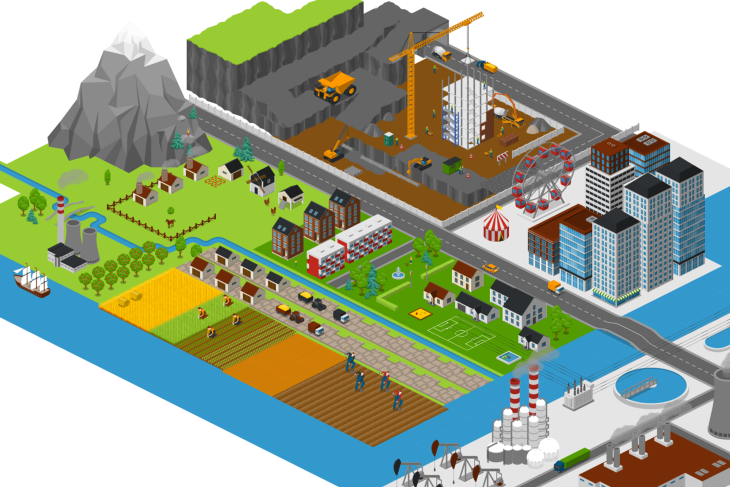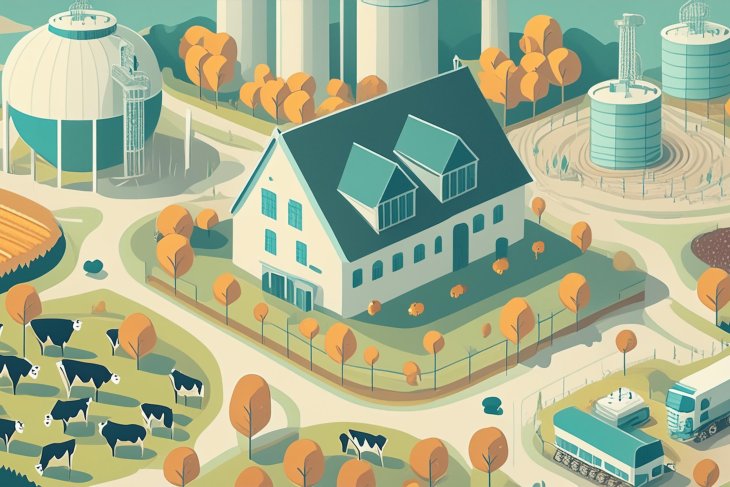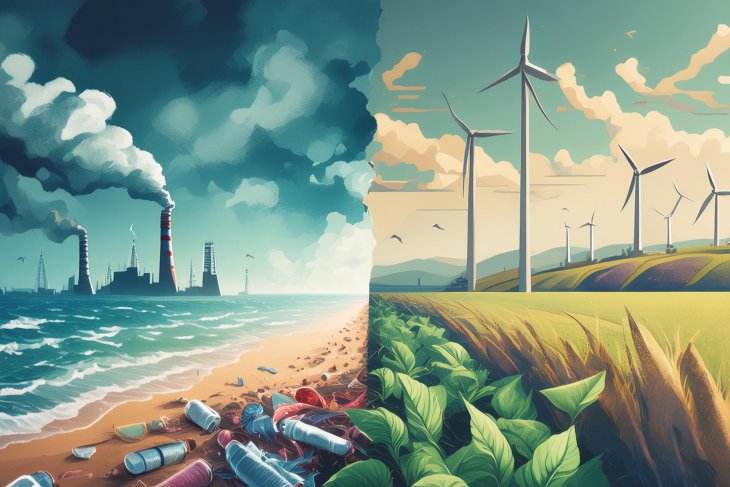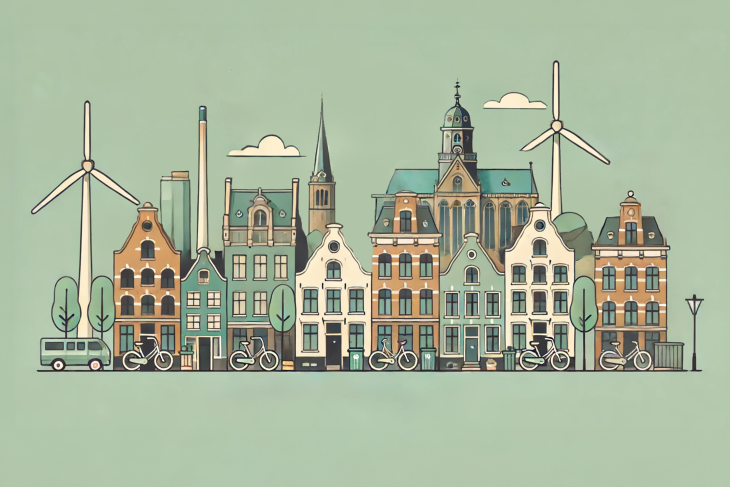Chantal Ermling is a bachelor's student Industrial Engineering & Management. Throughout her studies, she found herself drawn to the subject of sustainability. Therefore, she decided to follow the minor Circular Economy Transition. This cross-disciplinary minor implements real-life problems to prepare students to become implementers of the future circular economy. Chantal participated in the Circular Economy Transition game as part of the minor.
Serious game: the Circular City
This online serious game is set in a hypothetical city where groups of students are responsible for one rural and one urban house, a product company and a service company. Each group has a voting right in the municipality. All groups together had to manage several resources in the city. “Almost instantly, we noticed that there were not enough resources to satisfy the whole city”, explains Chantal. Due to the game's set-up that aligns with the real-life sustainability challenges, the resources were depleted and the situation rapidly deteriorated. Groups had to make decisions to implement circular actions and ensure the city could sustainably survive.
“Something needed to be changed. We had to go circular”, says Chantal. Next to taking circular actions for houses and companies, all groups presented their view on how to vote on the governmental instruments. As game masters, Devrim Yazan and Yifei Yu gave the students several policy changes to vote for. Chantal says: “One example of policies the students could vote for was ‘The government wants to increase the landfill tax by 30% while increasing subsidies for waste recycling technologies by 50%’. The students then had to discuss whether they should vote in favour of the policy change or not.”
Realistic experience
Because all students came from very different studies, they had different attitudes, visions and ideas. With two companies and two households to manage, and all the various study backgrounds, the groups had quite different opinions on the right solution. “It showed me that there is not a single solution for these transitions”, said Chantal.
Devrim and Yifei found it challenging to convert something so scientific into an interesting learning experience for students. “Making this game was complicated. We had to implement the complexities of real life into an interesting and impactful experience”, they said. Chantal acknowledged that: The game was so complicated that it took some time to get used to where to find everything, but in the end that was also what made it more enjoyable.
Sustainable and Resilient Circular Economy Laboratory
The Circular Economy Transition City game was developed for the minor Circular Economy Transition by the Sustainable and Resilient Circular Economy Laboratory (SRC Lab). The SRC Lab developed three serious games to teach students about the different stakeholder roles and the challenges to cooperatively tackle sustainability and resilience challenges at micro, meso, and macro levels. Our future leaders are our students and this interdisciplinary learning environment helps them to be prepared to transform our sustainable future.




